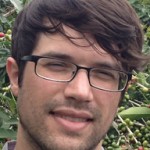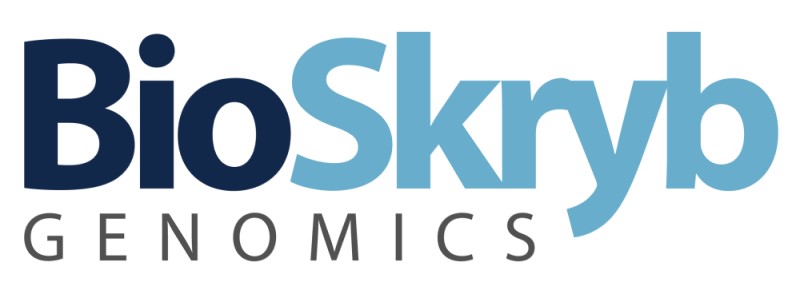Discover a groundbreaking webinar delving into the development of SCAN2 and how this algorithm enables single-cell sequencing with high accuracy for somatic mutations. Somatic mutations arise due to DNA damage or errors in DNA synthesis and are propagated through cell division. Unlike inherited variants, somatic mutations are shared by only a fraction of the cells in an organism. Numerous algorithms have been developed to identify somatic mutations present in clonal populations in cancer cells. But, for non-cancer cells, the majority of somatic mutations — other than those that arise very early in development — are shared by very few cells or can even be private to a single cell. To identify such mutations, new detection techniques are required.
With standard bulk sequencing approaches, detecting mutations in <5% of cells is difficult at typical whole-genome sequencing depths of 30-60X. Increased sequencing depth allows access to lower-frequency mutations, but the cost of sequencing quickly becomes prohibitive and the detection limit does not improve substantially.
Read more...
In this webinar, the featured speakers will describe a recent analysis of whole-genome single-cell sequencing data generated from primary template-directed amplification (PTA) at ~30X which provided access to 90-95% of the genome per cell with amplification of both alleles at similar levels for about 70% of each genome with significant improvement from the data generated from multiple displacement amplification (MDA), which had 80-95% genome coverage and only 39% coverage of both alleles.
Analysis of single nucleotide variants (SNVs) and small insertions and deletions (indels) was enabled by SCAN2, an algorithm developed, specifically for PTA-amplified single cells. SCAN2 remained accurate (sensitivity ~45%, false discovery rate <20%) even in challenging scenarios such as cells with only hundreds of somatic mutations in the entire genome.
Read Less...
Join this webinar to gain insights into the SCAN2 algorithm and how it enables single-cell sequencing with high accuracy for somatic mutations.
Speakers

Peter J. Park, PhD, Professor of Biomedical Informatics, Harvard Medical School
Dr. Peter J. Park is a Professor of Biomedical Informatics at Harvard Medical School and Director of its Bioinformatics and Integrative Genomics PhD program. His research group specializes in computational and statistical analysis of large-scale DNA sequencing data to understand genetic and epigenetic mechanisms related to disease processes.
Originally trained in applied mathematics (BA from Harvard; PhD from Caltech), he was introduced to molecular biology and genetics during his postdoctoral studies in biostatistics. His laboratory has developed several algorithms for genome analysis and has made substantial contributions to consortium projects such as The Cancer Genome Atlas (TCGA), Encyclopedia of DNA Elements (ENCODE), Brain Somatic Mosaicism Network and 4D Nucleome (4DN).

Lovelace J. Luquette, PhD, Postdoctoral Fellow, Harvard Medical School
Dr. Lovelace J. Luquette is a Postdoctoral Research Fellow in the laboratory of Dr. Peter Park at Harvard Medical School. He received his BA in mathematics and computer science at Boston University and his PhD in bioinformatics and integrative genomics at Harvard University. His expertise is in developing bioinformatic methods to analyze DNA sequencing data, with a special interest in somatic mutation discovery and single-cell technologies.
He is a contributor to several large projects focused on somatic mutation discovery, including The Cancer Genome Atlas (TCGA), the Brain Somatic Mosaicism Network (BSMN) and the Somatic Mosaicism across Human Tissues network (SMaHT) and has had the great opportunity to study mutational dynamics in the human brain at single-cell resolution through a long and fruitful collaboration with the laboratory of Dr. Christopher Walsh at Boston Children’s Hospital.
Who Should Attend?
This webinar is intended for academic and industry researchers interested in learning about the development and use of the algorithm SCAN2 in single-cell whole-genome sequencing.
What You Will Learn
Attendees will gain insights into:
- The algorithm SCAN2
- How SCAN2 enables analysis of single nucleotide variants (SNVs) and small insertions and deletions (indels) in single cells that have undergone primary template-directed amplification (PTA) followed by whole genome sequencing
Xtalks Partner
BioSkryb Genomics
BioSkryb Genomics is a rapidly growing organization that is transforming single cell molecular discovery and analysis. Through its single cell whole genome and whole transcriptome amplification tools, scientists and clinicians can gain an unprecedented view of the genome, transcriptome, and proteome within a single cell to better understand the drivers, mechanisms, and management of complex disease.
You Must Login To Register for this Free Webinar
Already have an account? LOGIN HERE. If you don’t have an account you need to create a free account.
Create Account

